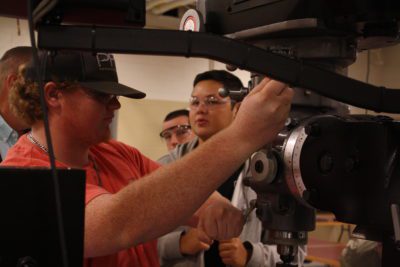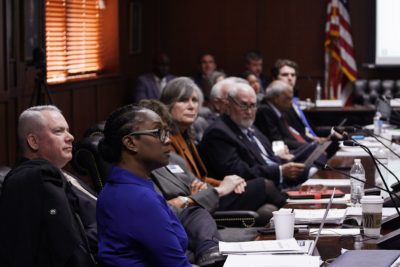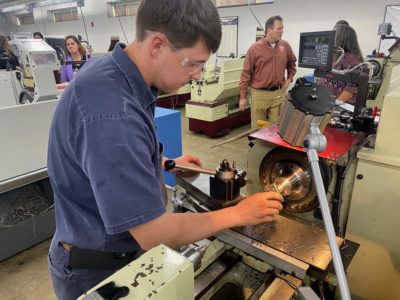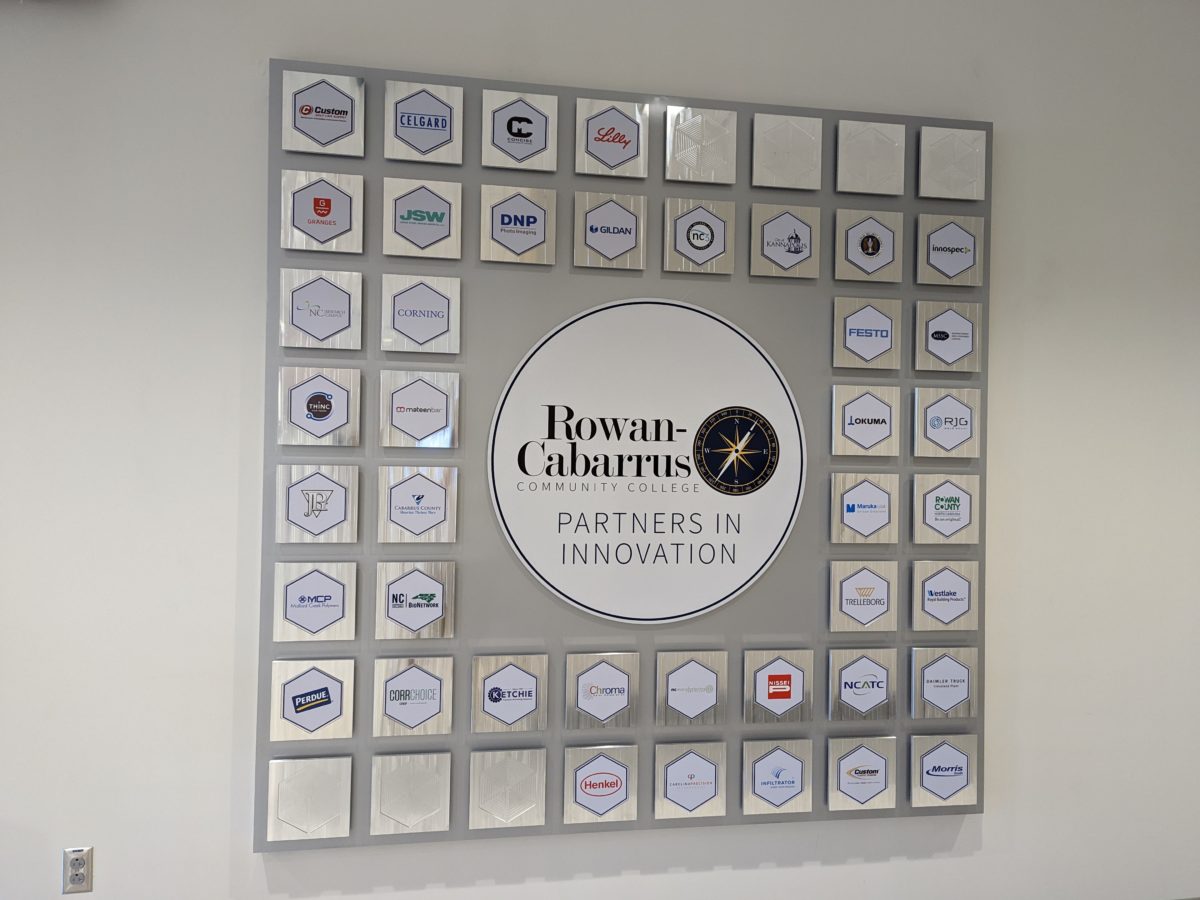
|
|
The leaders at Rowan-Cabarrus Community College know there’s a lot of opportunity in their community.
The two counties in the college’s service area, Rowan and Cabarrus, have been growing in recent years, thanks in large part to being part of the Charlotte metro region. Major companies like Amazon, Eli Lilly and Company, and Macy’s are also expanding in the area.
College leaders say they are making a concerted effort to capitalize on this growth.
Rowan-Cabarrus Community College (RCCC) is part of the Rowan County Education Collaborative, which works to align educational offerings with local workforce and economic development needs in the area.
At the college itself, this work has looked like becoming a “world class provider of technical training,” Craig Lamb, the college’s vice president of corporate and continuing education, said.
The college soon realized, Lamb explained, that boosting its customized training offerings could not only help the college itself, but also the greater community — in a way they didn’t quite expect.
Sign up for Awake58, our newsletter on all things community college.
Technical education is a boost for business
RCCC hosts a Machine Tool Academy for Okuma, one of the leading builders of machine tools for industry globally. The academy is part of the college’s Advanced Technology Center, which is housed on the North Carolina Research Campus in Kannapolis.
The center, which opened in 2019, is a 55,000-square-foot facility that has adaptable classrooms and labs designed to prepare students for various technical jobs from electrical engineering to cybersecurity to mechatronics.
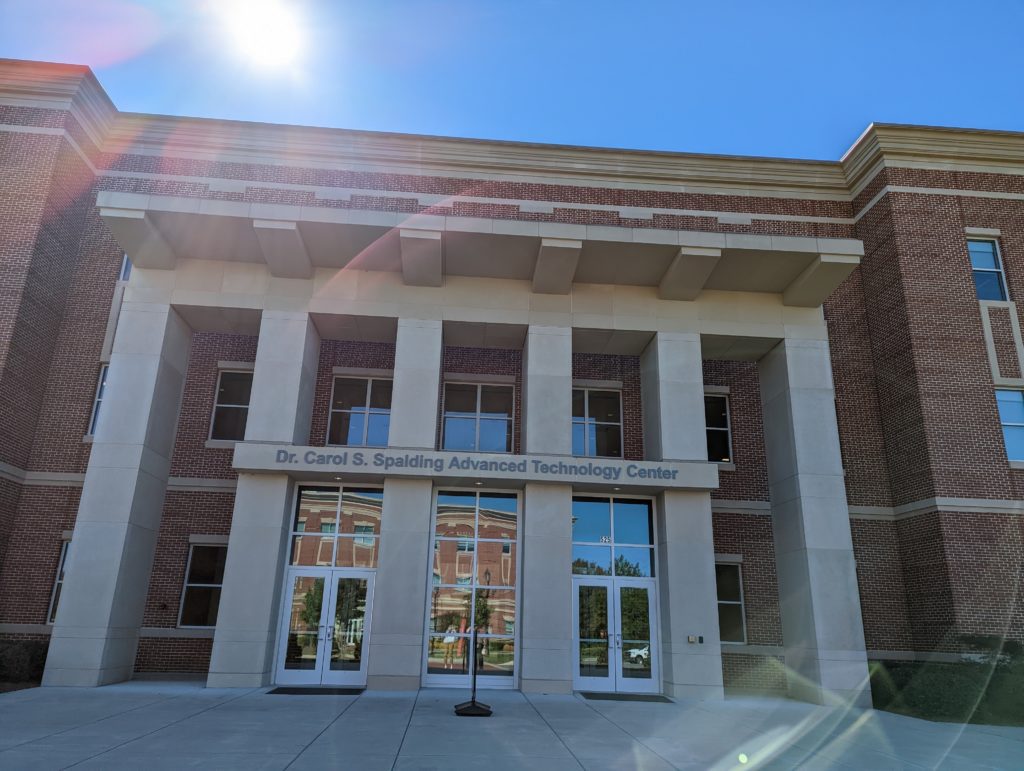
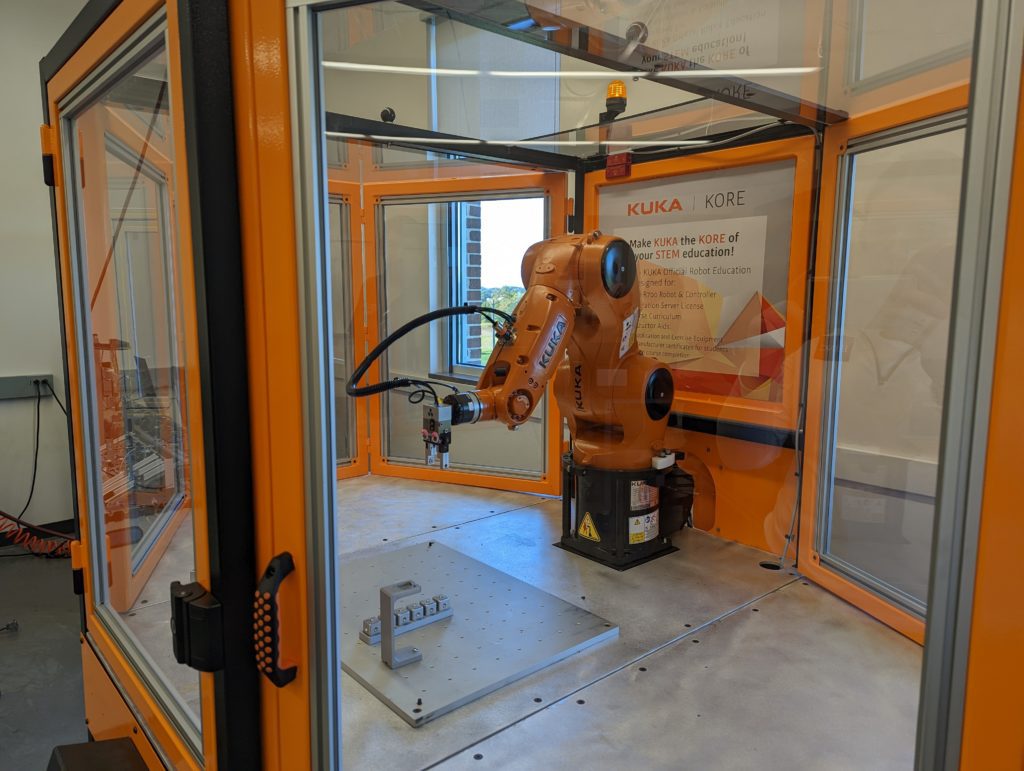
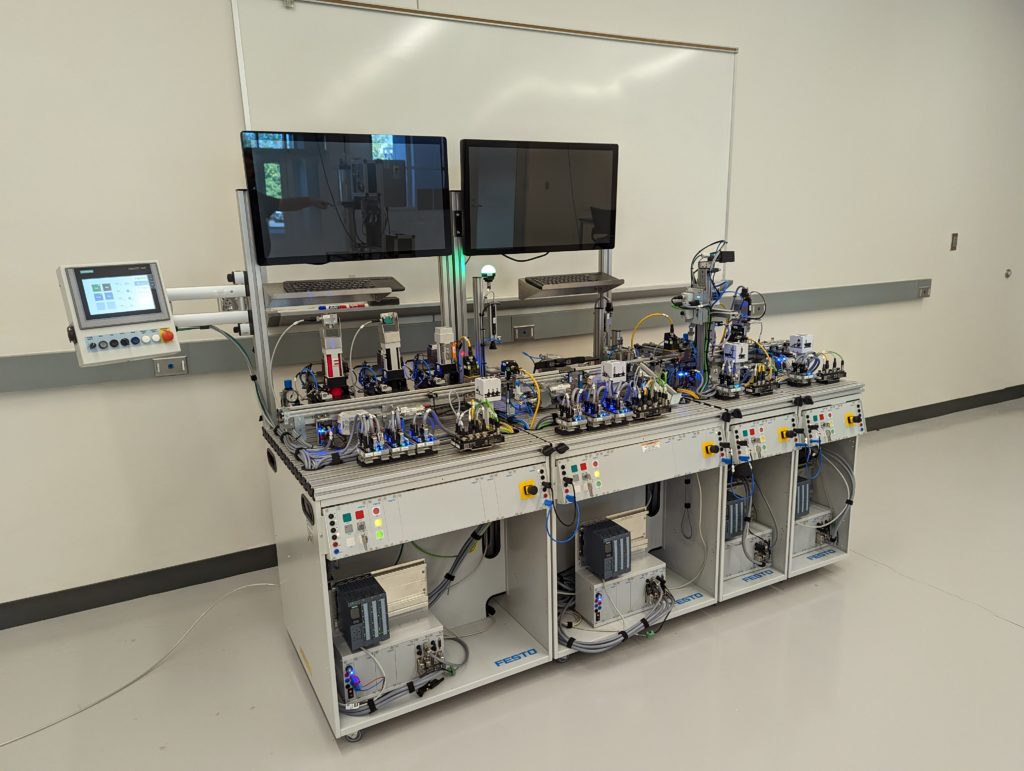
The academy at RCCC serves all of the company’s operations in North, Central, and South America, meaning employees from all over this part of the world fly into Kannapolis for training — something the college is dubbing “edu-tourism.”
“When they do (travel here), guess what? They stay in hotels, they pay travel expenses, they buy meals. They’re here for a week or two weeks, and they do entertainment things, and they spend money,” Lamb said.
This is one of the major ways RCCC sees its economic impact in the counties it serves. According to a recent report, the college has an annual economic impact of $238 million in Rowan and Cabarrus counties.
“Education is the best investment that you can make,” RCCC President Dr. Carol Spalding said.
Students at the college get an average annual rate of return of 24.3%, the report also found.
“That beats the stock market, or definitely a savings account,” Ken Ingle, chief information officer for the college, said.
Lamb said the college didn’t initially set out to have this kind of impact, but now they have embraced it as part of the strategy.
“It means that we bring in people who are weeknight revenue for those restaurants and businesses downtown when weeknight revenue is a hard thing to come by,” he said.
It goes beyond this one customized training program. Lamb said the college also has a plastics program that brings in students from across North and Central America, and it has a master instructor certification center for the Manufacturing Skill Standards Council, which brings in people from all over the southeastern United States, just to name a few.
But the college didn’t want to stop there. While continuing to support this “edu-tourism,” college leaders said they wanted to create opportunities for colleges to share knowledge about advanced manufacturing.
This fall, RCCC hosted the annual conference for the National Coalition of Advanced Technology Centers. Lamb said hosting the conference allowed the colleges to share what they’ve learned and best practices with other institutions from across the country.
“One of the things I really enjoy about being in community college world is that we’re essentially non-competitive,” he said. “We love to be bigger, you know, we always check the numbers when they come out. But we don’t compete for market.”
He said the college estimates that it generates about 5,000 hotel night stays each year, and the conference added an additional 50.
“It means that community colleges are in a position to not only influence standard metrics around degrees awarded, credentials, job placements, and earnings and things like that, but it further demonstrates our impact on the community’s economy,” he said.
Spalding said the college leaders had to be intentional to have this impact and grow relationships with local businesses. The college has a nine-person business services team that goes out into the community to connect with business leaders to find opportunities.
And there are many signs that this strategy is successful at building buy-in. The college moved its cosmetology program to downtown Kannapolis, and the city moved a bus line to serve it, Spalding said. More recently, Rowan County voters passed a $45 million bond in 2020 to support building a technology education complex.
Spalding said the college wants to be a “catalyst for change.”
“It’s not just the community college anymore, but it’s the environment that we’re in and communities that we serve, that we want to help empower and bring more prosperity,” Spalding said. “We see this as a much bigger mission.”
Recommended reading
